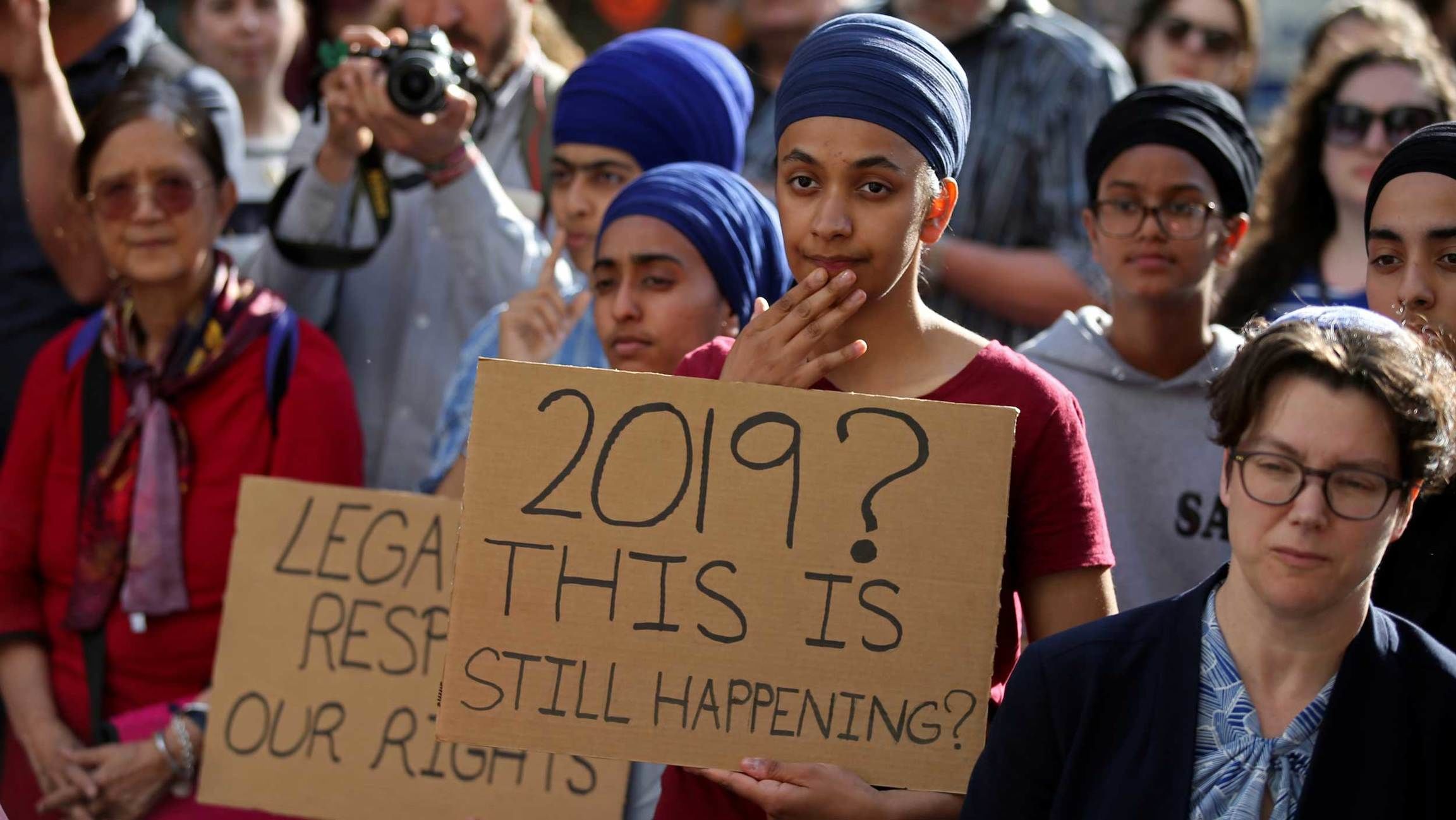
According to PRI, teachers and students in Canada have returned to school for the first time since a law banned teachers and public employees in positions of authority from wearing religious symbols — this means no Sikh turbans, Christian crosses, Jewish skullcaps or Muslim hijabs. The law, which passed in June, includes a clause which applies the law only to new hires or those who change jobs. Most teachers and school employees already working are grandfathered in.
Maha Kassef currently works part-time at a French-language elementary school in the Montreal region, and says she feels anxious about the new law given she wears a hijab. The law bars her from any future promotions, including going full-time, unless she removes her hijab. She says she asks herself, “Am I forever going to be a substitute teacher, going from one part-time contract to the next?”
According to the CBC, Bouchera Chelbi, who also wears hijab, says Quebec’s secularism law specifically targets women, especially Muslim women. The Montreal teacher is one of three plaintiffs in a legal challenge launched last week in Quebec Superior Court. The lawsuit filed by Chelbi and two other women alleges the law [known as Bill 21] exceeds provincial jurisdiction, fails to live up to its own definition of religious freedom, and violates Section 28 of the Charter, which guarantees gender equality, because the majority of teachers in the province are women.
“They can say that this is a law about secularism,” says Ms. Chelbi. “They can pretend that it’s a law about religious symbols. But at the end of the day, we all know that [in] the teaching profession, we are mostly women… If you go to Montreal, for example, you’d see that there are a lot of women wearing hijabs who are getting degrees as teachers.”



